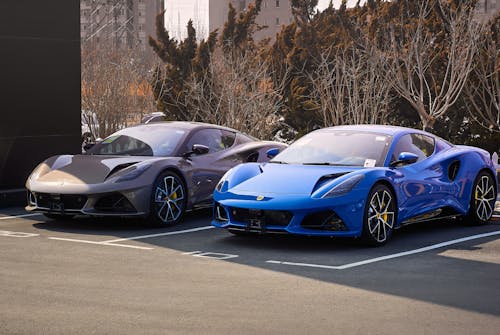Why Hybrid Cars Are Revolutionizing the Automotive Industry
The rise of hybrid cars is reshaping the automotive landscape. With growing concerns over fuel efficiency, emissions, and sustainability, hybrid vehicles present an alternative that combines electric and gasoline technologies. This article explores the multifaceted benefits of hybrid cars, delving into their impact on consumer preferences, environmental sustainability, and the future of transportation.
Transforming Consumer Preferences with Hybrid Cars
The advent of hybrid cars has dramatically altered consumer preferences and expectations in the automotive sector. As awareness of environmental issues grows, many consumers are actively seeking vehicles that demonstrate eco-friendliness while maintaining performance. Hybrid cars combine traditional gasoline engines with electric power, offering drivers significant fuel efficiency. For example, popular models like the Toyota Prius and Honda Insight exemplify how hybrid cars are not just convenient but are also appealing to environmentally-conscious customers. In a survey conducted in 2022, over 60% of respondents indicated that they would consider a hybrid car as their next vehicle. This shift highlights an industry transformation where hybrid options are gradually becoming more mainstream. Furthermore, manufacturers are responding to this demand by expanding their hybrid offerings, demonstrating that the hybrid car market is flourishing. All these factors illustrate how hybrid cars are at the forefront of a changing automotive landscape.
Environmental Impact of Hybrid Cars
Hybrid cars play a crucial role in mitigating environmental impact. By combining a gasoline engine with an electric motor, these vehicles significantly reduce emissions, leading to less pollution in urban areas. This is particularly important to address the challenges posed by climate change and air quality deterioration. Studies show that hybrid cars emit up to 30% less carbon dioxide compared to their gasoline-only counterparts. Their further enhanced fuel efficiency translates to lower reliance on fossil fuels, which is critical for moving towards a sustainable future. Notably, as hybrid technology improves, the potential for even lower emissions increases, making these cars a viable long-term solution. Moreover, state and federal incentives encourage consumers to purchase hybrid cars, increasing their accessibility. Therefore, hybrid cars are not just excellent for individual consumers but also for society as a whole, paving the way for a cleaner environment.
The Future of Transportation and Hybrid Cars
As we look ahead, the hybrid car will likely innovate and evolve alongside technological advancements in the automotive industry. The integration of artificial intelligence and better battery technology are currently paving the way for smarter hybrid vehicles. These enhancements will not only boost performance but also expand the functionalities of hybrid cars, making them more appealing. Additionally, the development of alternative fuel sources also signifies a burgeoning interest in hybrid technology. Emerging hybrids capable of running on biofuels or hydrogen, for instance, could redefine what consumers expect from vehicles. Furthermore, it’s important to note that as traditional fuel costs escalate, hybrid cars present a financially smart option that may lead to significant savings on fuel. Therefore, hybrid cars will play an integral part in the transition to more sustainable transportation in the future.
Societal Changes Driven by Hybrid Cars
The rise of hybrid cars is not just affecting individual consumers; it’s provoking major societal changes as well. Communities are increasingly focusing on sustainable transportation, leading to initiatives that promote the use of hybrid vehicles. For instance, some cities are offering special lanes for hybrid cars, incentivizing their use in urban areas. The endorsement of hybrid cars aligns with broader public policy goals aiming for reduced traffic congestion and cleaner air. As a result, hybrid cars have emerged as symbols of innovative solutions to modern societal challenges. The overall acceptance of hybrid technology may also foster an increase in electric vehicle adoption, driving more significant progress toward sustainability. Such shifts in society accentuate the importance of hybrid cars not merely as vehicles but as champions of eco-conscious living.
Driving Experience: What Sets Hybrid Cars Apart?
A common misconception about hybrid cars is that they compromise on performance for the sake of fuel efficiency. However, this is far from the truth. Most hybrid cars are designed for a smooth and responsive driving experience, demonstrating that versatility does not need to be sacrificed. The seamless transition between the gasoline engine and electric motor creates a unique driving experience that many enthusiasts appreciate. Factors such as regenerative braking further enhance control and efficiency during driving. Alongside these enhancements, hybrid cars also facilitate a quieter ride due to the electric motor's operation at low speeds. This not only improves the comfort of passengers but also aids in reducing noise pollution in residential areas. In this context, choosing a hybrid car becomes a choice for performance and comfort, reaffirming why more consumers are leaning toward hybrid options.
Conclusion: The Role of Hybrid Cars in a Sustainable Future
In conclusion, hybrid cars signify an exciting shift in the automotive industry, offering numerous benefits that resonate with modern consumer values. They are not just vehicles; they embody a more sustainable approach to driving while fulfilling the demand for performance and comfort. With environmental concerns at the forefront of societal issues, hybrid cars emerge as flexible solutions poised for growth in consumer popularity. As technological advancements continue, the future of hybrid cars appears promising, fostering innovations that will only enhance their appeal. Thus, understanding the profound impact of hybrid cars is essential for grasping the future of transportation, pointing us towards a more sustainable future.
